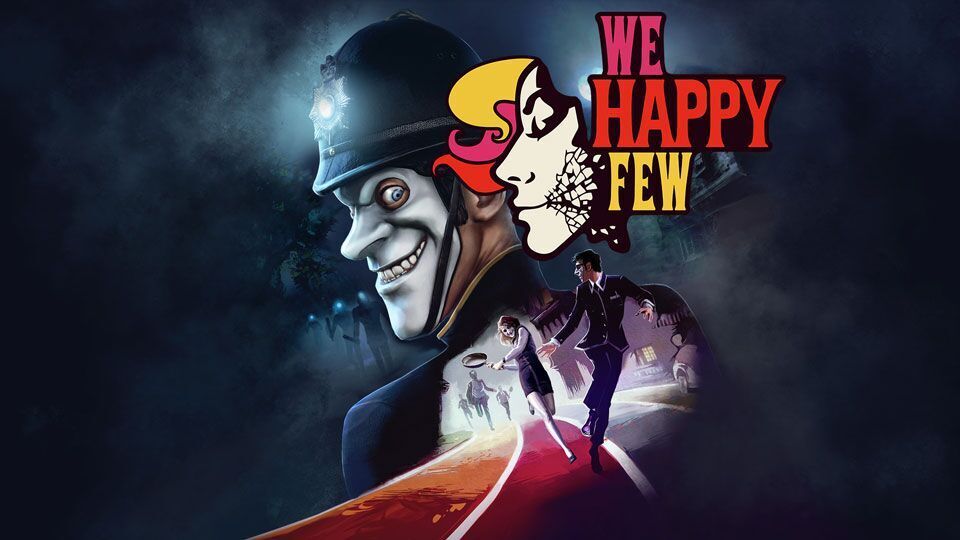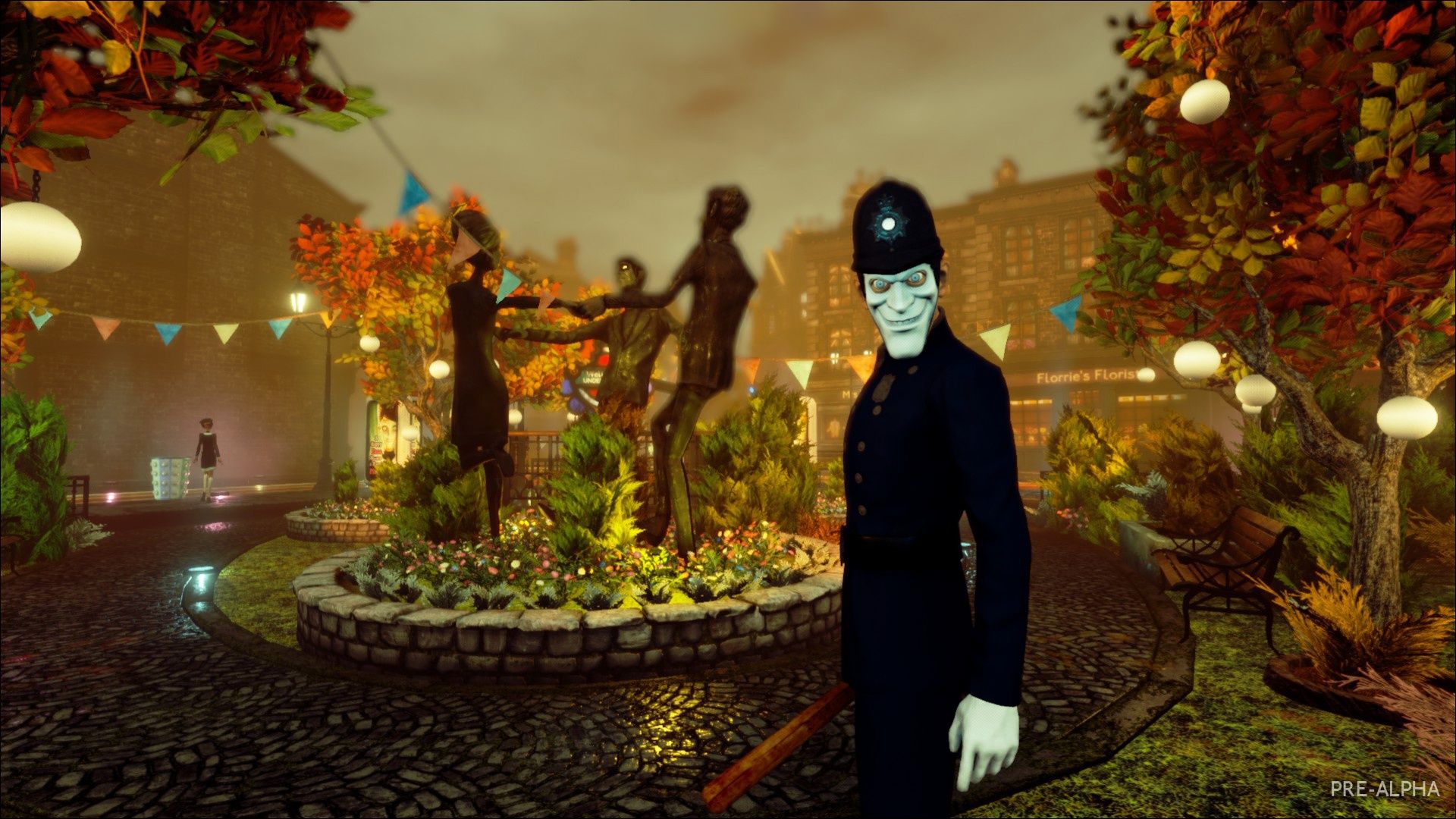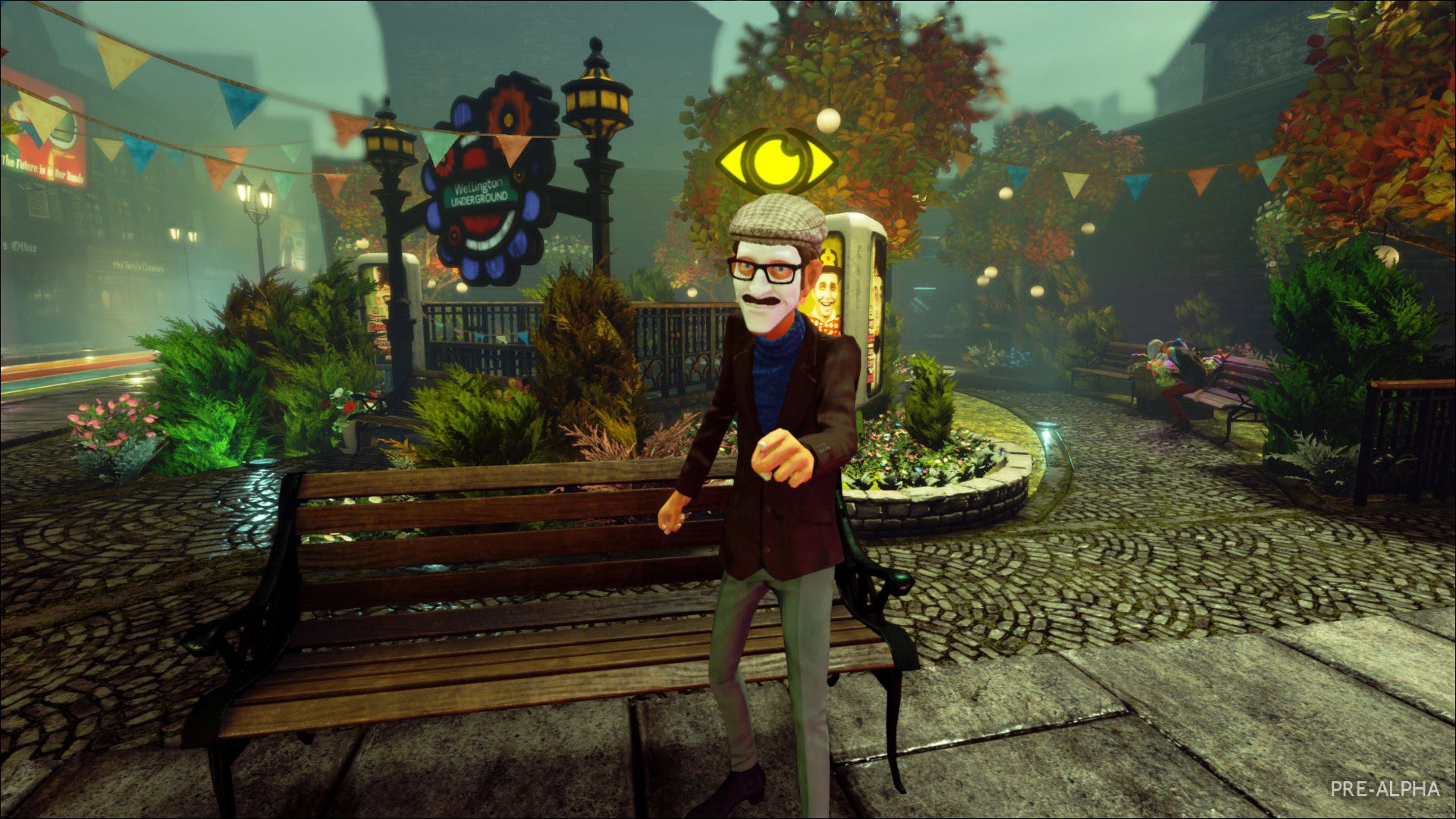By all accounts, Compulsion Games' We Happy Few should be one of my favorite games this year. As far as world-building goes, it checks off nearly everything on my checklist. Dystopian society? Check. References to both George Orwell and Ray Bradbury? Check. An intriguing style to match and embellish that same world? Check check check.
Even still, something just doesn't feel right about We Happy Few. Much like the denizens of Wellington Wells and their hollow smiles, We Happy Few seems like a shell of the original idea presented in blockbuster trailers. And that is a right shame.
[pullquote]"We Happy Few seems like a shell of the original idea presented in blockbuster trailers. And that is a right shame."[/pullquote]
In case you have been living in the dark of the indie scene since 2015, We Happy Few is Compulsion Games' ambitious follow-up of PS4 launch title Contrast. Set in a 1960's alternative history dystopian timeline where the Germans won World War II, Britain has fallen to a state of polite dysfunction. As the world around them rots and dies, the society surrounding the characters demand everyone keeps taking Joy--a paper thin throwback to A Brave New World's "Soma." When taking the drug, everything is pleasant, vibrant, and you have more than enough docile characteristics to keep everyone subjugated.
For those trying to imagine it, think of something like this:
From there, the crux of the story begins with Arthur Hastings refusing his Joy while censoring the papers, in a desperate attempt to remember what happened to his brother. The plot from there is long, winding, and often exaggerated in an almost Monty Python-esque fashion, following storylines of a couple other characters before the game's conclusion. And if you had a pre-conceived notion of the story beats that a game with this setting is going to take, you would likely be right. A series of protagonists looking to clear the world of Joy and the menace of the controlling powers keeping everyone in some sort of mental stupor.
Now, there is nothing wrong with that narrative as many games have tackled it both artistically and interestingly--the problem lies in the actual execution of it all. Too much of We Happy Few feels stiff, and that is not considering gameplay. Story segments (outside of a well-crafted intro) often feel hamfisted and over-explained; everything happening to any of the protagonists (from significant story point to picking flowers) tends to come with follow-up, over-explaining dialogue that I couldn't help but mute. While there is plenty in the game that is hidden and elaborates on the fascinating history of the world, Compulsion seems to try too hard to capture an audience of inpatient narrative fans, and the game suffers.
Unfortunately, sloppy execution isn't limited solely to the dialogue. Despite seemingly only being talked about for four years, We Happy Few feels like a game that has suffered double the time in "development hell." Perhaps it speaks to the ever-shifting dialogue of game design, but the game was just shy a Battle Royale and VR segment to capitalize on the buzzwords of yesteryear. In all seriousness, gameplay mechanics like crafting mechanics and procedural generation feel thrown in haphazardly without giving any kind of satisfaction to the overall gameplay loop of the story.
To begin with procedural generation, the entire world is technically "procedurally generated" outside the scope of main story segments that are common between each game. That's to say that specific details of the map shifts between each playthrough, while the substantive bits stay the same. This, frankly, adds absolutely nothing to the overall story, gameplay options, or mechanics of the game. At its best, procedural generation gives infinite permutations in-game to offer replayability; at worst, it acts as more of a buzz-word and crutch for developers to shy away from hand-crafted segments. Used in We Happy Few, the game seems like more of the latter. Even if We Happy Few was my favorite game of the year (hint: it's not), I would be hard-pressed to want to replay to see where the bushes and buildings would pop up differently.
[pullquote]"Of course, that is the better option than my first playthrough where they were T-posing with their back to me."[/pullquote]
Outside of the macro gameplay of We Happy Few, moment-to-moment doesn't feel much better. As a point of comparison, the game tends to feel like a worse-off The Elder Scrolls V: Skyrim which is not a game typically lauded for the gameplay in 2018. Players generally are choosing between looting every item in the nearby area, sneaking around brush, or doing your best to remain inconspicuous among the Wellies. However, after playing so many games this year that created a fulfilling and rewarding gameplay loop, it's tough to get into anything where gameplay feels more like filler. Whether we are talking about the crafting or the hand-to-hand (or umbrella-to-hand) combat, everything feels like mindless activities to get to the next story segment.
And taking all of that aside, the game is poorly constructed or still technically broken in many parts of the campaign. In one of the first section of Arthur's story, you are chased into a church with an angry mob doing their best to... well... mob you. And despite you opening up the doors to the still-screaming crowd after tearing up your suit, you see... nothing? Where were the voices coming from a millisecond ago? Of course, that is the better option than my first playthrough where they were T-posing with their back to me.
[pullquote]"Perhaps with a little Joy, We Happy Few could be more palatable to modern audiences."[/pullquote]
And in the early build of the game, this isn't something that is entirely uncommon. While I have no doubt many people will go through We Happy Few with hardly any issues at all, corpses had a knack of clipping through roofs or getting stuck in furniture. There were more than a few times that I would fall through the ground--an issue I had to fix by reloading a nearly hour-old savepoint.
There's no doubt a ton of positive elements to We Happy Few, but it seems like a fantastic world clouded over by overzealousness on the part of Compulsion Games. While they should be lauded for their hand in crafting a world that I wanted to dissect every inch of, too much of the game feels like filler for its own good. Perhaps with a little Joy, We Happy Few could be more palatable to modern audiences.
We Happy Few
- Released
- August 10, 2018
- Developer(s)
- Compulsion Games
- Publisher(s)
- Gearbox Publishing
- ESRB
- M For Mature 17+ due to Blood, Strong Language, Suggestive Themes, Use of Drugs and Alcohol, Violence



